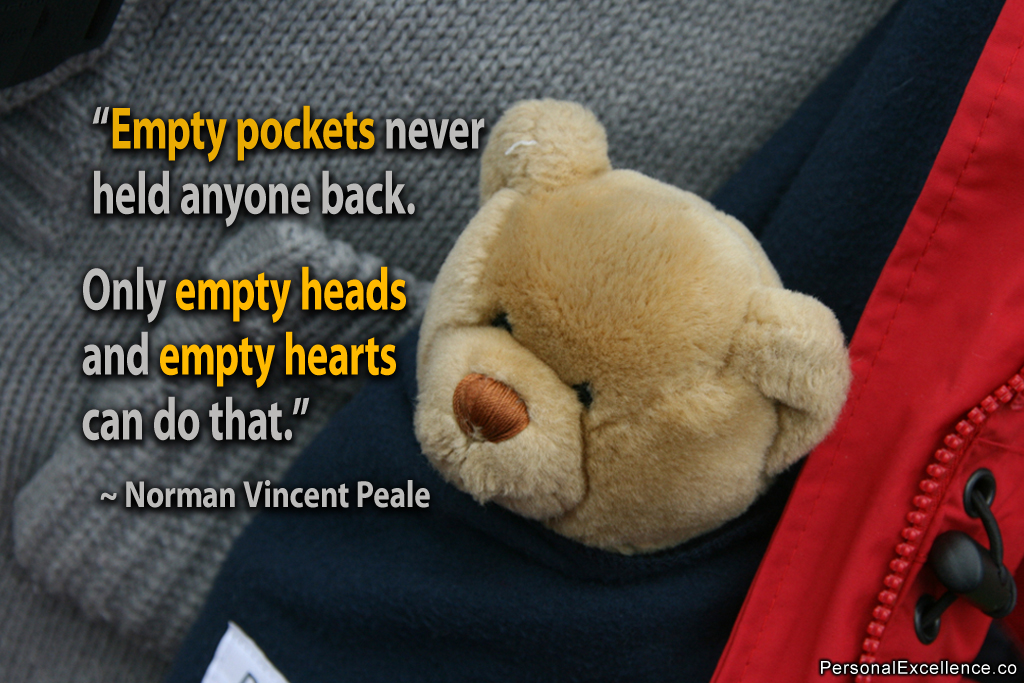This is Day 5 of my 21-day fast in Feb 2011 and probably the most in-depth fasting series you will ever find online. If you’re new to fasting, get the full background here: Fasting Experiment. Access all my articles on fasting: The Fasting Series.

Day 5 of my water fast is over! Here are my stats for the day:
- Today’s Weight: 133.8lbs / 60.7kg
- Diff vs. Yesterday: -1.8lbs / -0.8kg
- Total Difference: -10.6lbs / -4.8kg
- Water consumption: 2.5 liters
- Body Temp: 35.5 C / 95.5 F
Overall Review
Today was pretty rough. There was nothing severe but the feeling of nausea was stronger than yesterday. If I was not doing anything it’d be okay, but if I was taking in too much stimuli, say watching a video with a lot of flashing and switching of scenes or reading a chat screen where someone was bombarding me with a lot of technical information, I’d feel somewhat nauseous. I think even looking at the computer monitor for a while would give that effect. I didn’t feel like doing anything at all, so I pretty much slept for a large part of the day.
(Note: It’s actually Day 6 as I’m writing this review (1:20 am to be exact) and I’m feeling a lot better — which is also why I’m writing this post now.)
Water Consumption
Because of the feeling of nausea, I didn’t drink as much water as compared to Days 1-4. My consumption was 2.5 liters, which is still more than what an average person drinks anyway, just to give some perspective. My lips are slightly dry though so I’m taking that as a sign to drink more water. I’ll continue to drink as long as it doesn’t make me feel uncomfortable.
Hibernation Mode
For Day 5 my body felt like it was in hibernation mode. Mentally I was awake, feeling great and I had all these things I wanted to do, but physically I just wanted to lay down and not do anything. I believe this was compounded by the nauseousness. When I tried to do something the nauseous feeling would surface, so I decided to just rest instead. I did manage to get some simple stuff done such as making calls, clearing administrative stuff, etc. before I went back to rest. I slept for a good part of the day.
Later in the evening, I woke up but it was the same thing (I was physically inert but mentally conscious), so I decided to lay on the bed and play some personal development podcasts so that I could at least do something rather than feel like a vegetable. That actually worked out really well. I was able to absorb a lot of information from the podcasts while giving my body the rest it was asking for.
Energy Flow: Inward (Healing) vs. Outward (Physical Action)
I see this hibernation as a sign that my body is channeling energy towards inner healing vs. expending it outward to the world. While I could get out there and do stuff, it would take energy away from the inner work my body is trying to do.
Say you have 1,000 units of energy a day. By choosing to do a lot of physical activities, you expend 500 units of energy. This leaves 500 units of energy left for inner work, which slows down your healing process. Whereas if you conserve your energy and do minimal work (or even none at all), you get to preserve a large chunk of the 1,000 units, which the body then uses to heal and recover (by processing the toxins).
A common belief people have about fasting is that they think they lack energy, that they’re becoming weak and exhausted. It is partially true — physically you feel tired, especially entering into ketosis (Days 3-4 onwards). That’s because you no longer have access to immediate energy fuels like glucose (from the food you just ate) and glycogen (from the liver) to burn and use for the next task.
However, you’re not lacking energy for survival. Like I mentioned in the fasting article, all of us have fat reserves that can last us for 40 days, some even longer (especially those who are overweight or obese). The people who are pregnant, overly thin, emaciated, etc. don’t apply — the same list of exceptions I listed in my original post. Our fat reserves have all the nutrients, vitamins and minerals we need for the entire 40 days or X number of days of our fast. This means you can literally go to a deserted island without food and maybe 50 tanks of water and emerge totally fine at the end of 40 days (probably a whole lot healthier and cleansed to boot).
The difference isn’t in how your energy is being channeled. During fasting, your body wants to use all your energy to heal internally. So physically you may feel less energy, but rest assured that you’re not running out of it.
Complexion
Today I noticed my skin is clearer than before. As an Asian living in a tropical climate, I normally have oily skin, occasional breakouts, and zits, but since I started my water fast I haven’t had any new pimples. My face is also brighter, and less oily.
When I went on a raw food experimental trial on 14 Jan this year, I experienced the same effects too. Less oily skin, no pimples/zits, no weird breakouts. However, when I tried eating cooked food a couple of weeks later (during Chinese New Year), the same skin condition of oiliness, zits, occasional breakouts, etc. came back. For sure I definitely see a high correlation between the kind of food I eat and my skin quality.
(The next comment is about menses and is addressed to females, so males skip ahead to the next section on Detox.)
————————————————————–
Usually before my menses, I’d have quite a breakout (like 3-5 medium to large pimples around my face). However yesterday, I had my menses and my skin was perfectly fine — no new pimples like I mentioned above. No pain or cramps either, though I have never had any problems where my menses is concerned so I can’t comment much on it. I won’t be surprised if people who usually face difficulty with their menses experience a positive change when they fast.
————————————————————–
Other Detox-related Signs
Besides the nausea feeling, I also sneezed a couple of times today out of the blue (it wasn’t chilly or anything too). But there was nothing after that, so it might or might not be a detox symptom.
By the way my left eye is no longer red, so that’s good.
Heart Rate
I experienced a higher heart rate on Days 4 and 5. At first, I thought might be because I didn’t sleep as much as I should, but today I slept a lot and continued to feel the higher heartbeat (happened only when I was not lying down).
I looked that up and found that this is a normal sign (excerpt from Symptomatology of the Fast).
The pulse varies greatly during a fast. It may run up to 120 or even higher, or it may drop as low as 40, per minute. Indeed, Mr. Macfadden records a case in his practice in which the pulse went down as low as 20 and was so feeble it could scarcely be felt. It is the usual thing to have the pulse rate increase at the beginning of the fast and then, after a day or two, to drop.
In chronic cases that are confined to bed during the fast, the pulse usually, after its temporary rise, drops to 48, or 40, where it may remain for a day or two days and then mounts up again to 60. After a few days it will settle at 60 and remain there until eating and activity are resumed.
It is, of course, understood that the pulse is subject to all the variations, while fasting, as at other times of life, and that where there is “disease” of the heart, or nervous troubles, it will often vary greatly from the above standard. Where stimulants are employed during a fast, these occasion more heart activity than if taken when one is eating.
(Normal resting heart rate for humans is 60-80 by the way.)
I’ll continue to monitor and update in later posts.
Blood Pressure and Whether Fasting Helps It
Yesterday someone asked in the PE forums whether fasting was appropriate for people with high blood pressure. Here’s what I got from my research:
Quote from Dr. Ben Kim, who runs a residential fasting and chiropractic clinic in Ontario (source):
Q. Can fasting cure specific conditions?
A: It’s important to keep in mind that fasting is not a cure for specific health challenges. Rather, it is an opportunity to give the body a prolonged period of rest to do what it does best – heal and restore itself. The same healing mechanisms that are at work during a fast are also at work while a person is eating. The difference is that during a fast, all of the body’s resources are channeled towards its self-healing and restorative mechanisms.
Conditions that tend to respond favourably to fasting and dietary modification include high blood pressure, asthma, allergies, chronic headaches, inflammatory bowel disease (ulcerative colitis and Crohn’s disease), irritable bowel syndrome, adult onset diabetes, heart disease, degenerative arthritis, rheumatoid arthritis, psoriasis, eczema, acne, uterine fibroids, benign tumours, and systemic lupus erythematosus.
From Loren Lockman, experienced faster who has supervised fasts for 9-10 years (source):
…Heart disease affects 50% of all Americans. Last year, a peer-reviewed study published in a medical journal proved that fasting is three times as effective as hypertension medications at reducing high blood pressure.
…There are some typical symptoms that one may expect to experience. As mentioned earlier, fasting is the most effective way to treat high blood pressure. Within days of beginning a fast, most people will see their blood pressure begin to drop. In cases where there is a lot of arterial plaque, blood pressure may go up first, as these fatty deposits are broken down and released into the bloodstream, thickening the blood.
For myself, my blood pressure is on the lower side of the healthy range (90, where the regular range is 80-120), so the fasting led to a lower blood pressure which I believe is why I’m experiencing light-headedness that I mentioned on Days 3 and 4. I’m addressing that by getting up very slowly when moving from one elevation (sitting) to another (standing), and it’s been helping.
Weight Loss
Today I’m at 133.8lbs / 60.7kg, which is a difference of -1.8lbs / -0.8kg vs. yesterday and -10.6lbs / -4.8kg since I started. Again, it felt really nice seeing my weight register at this number after a long while. While I was looking in the mirror, I noticed my face has slimmed down a little bit and my hips and my tummy are definitely smaller. My overall body frame is also slightly smaller than before. I haven’t tried some of the nice clothes that I bought in the past but never wore because I was conscious about how I’d look but I’m sure they’re going to fit a lot better if I keep this up.
Standing on the scale has become a daily highlight nowadays. ^_^* Of course, fasting has a lot more benefits than just weight loss, and the diet you take on post-fast is really crucial — else one can simply gain back all the weight (and more) post-fast. I read about a faster who fasted for 40 days, lost lots of weight, and regained all the weight post fast, plus some.
Unless you make a commitment to turn things around, ultimately everything is going to return the way it was before the fast. The same applies to everything in life really — unless you make a commitment to make real change, especially in whatever caused the issue to begin with (and not just by fixing what’s on the surface), problems will never get fixed.
Will update more when there’s stuff to report!
Update: Day 6 is up!
This is Day 5 of my 21-day fast in Feb 2011 and probably the most in-depth fasting series you will ever find online. If you’re new to fasting, get the full background here: Fasting Experiment. Access all my articles on fasting: The Fasting Series.




![Good Carbs vs. Bad Carbs [Infographic]](https://personalexcellence.co/files/infographic-good-bad-carbs-200x550.gif)


 Thanks for reading. If you like my free articles, join my private email list and get my latest updates and articles sent right to your inbox.
Thanks for reading. If you like my free articles, join my private email list and get my latest updates and articles sent right to your inbox.